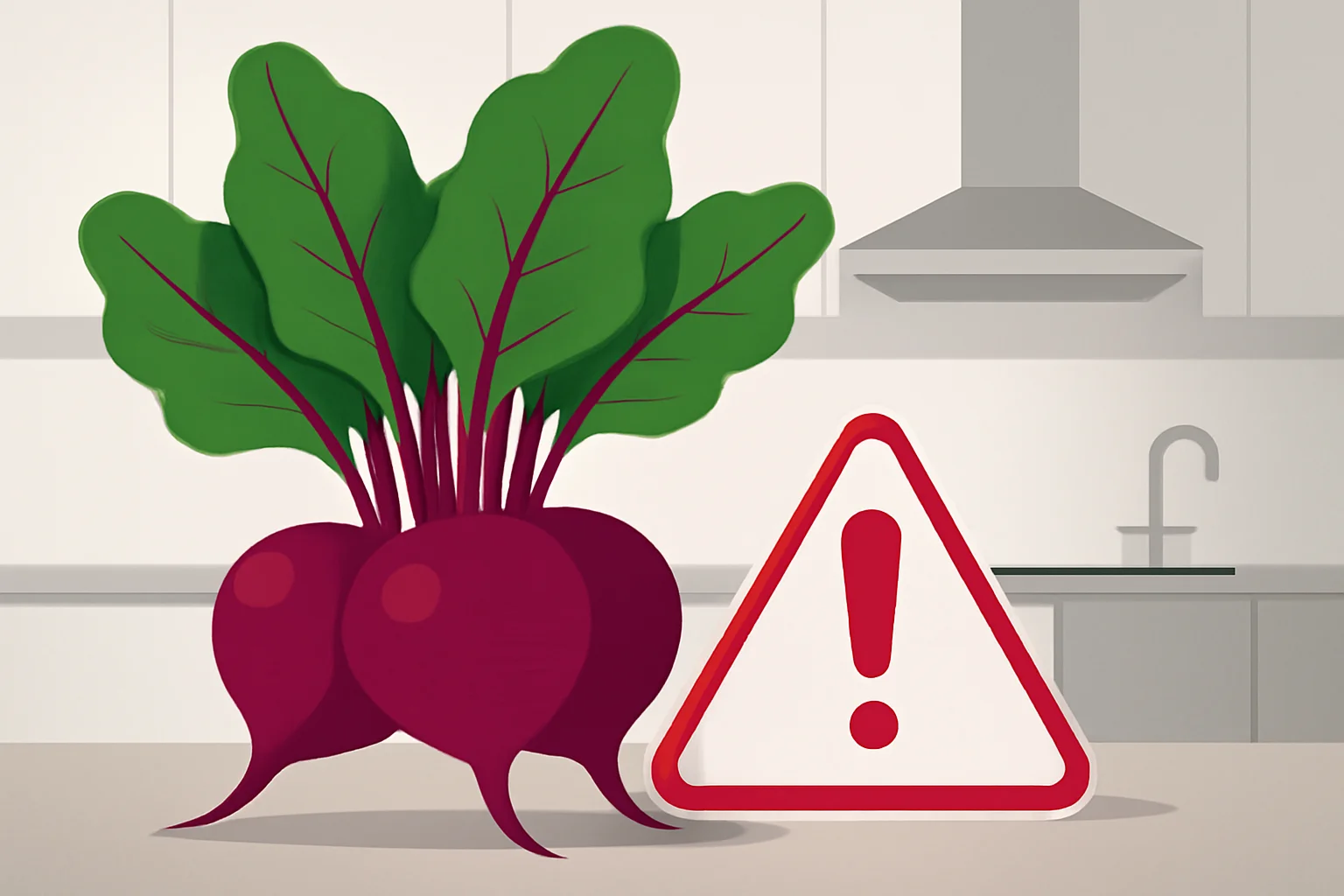
The harmful effects of beetroot: When should we avoid consuming it?
The beetroot, one of the most versatile vegetables in the world, has become increasingly popular in nutrition science in recent years. Due to its rich nutrient content and beneficial effects, many people choose it for their meals. Beetroot is not only delicious but also contains various vitamins and minerals, such as vitamin C, folate, and potassium. In addition to all this, consuming beetroot offers numerous health benefits, such as improving circulation, lowering blood pressure, and supporting liver function.
However, like all foods, beetroot has its downsides. Consuming beetroot may not be beneficial for everyone, and in certain cases, it can even have harmful effects. The aim of this article is to present the potential harmful effects of beetroot and to highlight the importance of moderation and awareness in nutrition. Alongside the health benefits of beetroot, it is worth considering who and under what circumstances it is advisable to consume this vegetable, as well as what side effects it may cause.
Beetroot and Kidney Problems
Consuming beetroot has many health benefits, but caution is advised in the case of kidney problems. Due to its high oxalate content, beetroot can pose a problem for individuals prone to kidney stones. Oxalates can combine with calcium in the body to form kidney stones, which can cause severe pain and health issues. Those who have previously suffered from kidney stones should consider reducing or avoiding their consumption of beetroot.
Furthermore, beetroot also has a diuretic effect, which can affect kidney function. Individuals with kidney failure should pay special attention to how much beetroot they consume, as excessive intake can cause problems with their fluid balance.
It is important for those struggling with kidney problems to consult their doctor or dietitian about beetroot consumption and to follow the recommendations of healthcare professionals. Moderation is key, and it is advisable to combine beetroot with other vegetables and fruits in the diet to ensure a varied and balanced nutrition.
Allergic Reactions and Sensitivity
Although beetroot is generally considered safe, it can cause allergic reactions in some individuals. Food allergies are becoming increasingly common, and beetroot is no exception. Allergic reactions can range widely, from skin rashes and itching to more severe, life-threatening reactions.
Those who are already aware of allergies to other vegetables or fruits should pay particular attention to their consumption of beetroot as well. Allergic reactions are most often due to an excessive reaction of the immune system, and certain proteins in beetroot can trigger these reactions. Symptoms may include swelling, difficulty breathing, abdominal pain, or even anaphylactic shock.
If someone introduces a new food, such as beetroot, into their diet, it is advisable to monitor the body’s reactions. If any unusual symptoms occur, immediate medical assistance should be sought. A doctor can help diagnose the allergy and determine appropriate treatment options.
To avoid allergic reactions, it is wise to gradually introduce beetroot into the diet and monitor the body’s responses. For those who already know they are sensitive to beetroot, it is recommended to choose other vegetables with similar nutrients that do not trigger allergic reactions.
Blood Pressure and the Effect of Beetroot
Beetroot is famous for helping to lower blood pressure, thanks to the nitrates it contains. However, this effect may not be beneficial for everyone. Those who already struggle with low blood pressure should be particularly cautious about consuming beetroot. Excessive beetroot consumption can further lower blood pressure, potentially causing dizziness, weakness, or even fainting.
Maintaining balanced blood pressure is crucial for our health. Those taking blood pressure-lowering medications should also pay attention to their beetroot intake, as it may interact with the medications and enhance their effects. Therefore, it is important to plan beetroot consumption in accordance with medication use.
The best approach is to consume beetroot in moderation and consciously. It is also advisable to include other vegetables in the diet alongside beetroot that can help maintain blood pressure balance. If someone is uncertain about the effects of beetroot, it is definitely recommended to seek medical advice.
Possible Digestive Problems
Consuming beetroot is problem-free for many people; however, it can cause digestive disturbances in some. Beetroot is high in fiber, which positively affects bowel function, but excessive consumption can lead to bloating, gas, or diarrhea. This is especially true for those who are not accustomed to a high-fiber diet.
It is advisable to gradually introduce beetroot into the diet so that the gut flora can adjust to the increased fiber intake. Those with sensitive digestive systems should be careful not to consume too much beetroot at once.
Additionally, the acidity of beetroot can irritate the stomach, especially in individuals suffering from heartburn or reflux disease. If someone regularly experiences these complaints, it may be wise to reduce or avoid beetroot consumption.
Before consuming beetroot, it is important to carefully listen to the signals from our body. If any digestive issues occur after consuming beetroot, it is advisable to consult a doctor to understand the causes and find a solution.
This article does not constitute medical advice, and in case of health problems, always consult your doctor.

